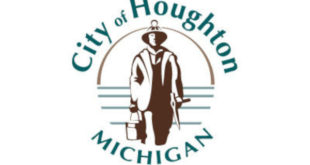A bill in Lansing would exempt incontinence, urological, feminine hygiene products and certain baby products from state sales tax.
The legislation has been introduced by State Representative Scott Dianda who says the state should not be making revenue off of a family’s personal health issues or off of babies.
Dianda says the cost of these products can create a hardship for middle-class or low-income families.
Here is Dianda’s statement:
Dianda Sponsors Tax Exemption for Baby, Incontinence Urological Products
Tax-exempt essential health care needs would be significant savings for families
LANSING — State Rep. Scott Dianda (D-Calumet) introduced legislation today to exempt from the state sales tax incontinence, urological, feminine hygiene products and certain baby products. The bill would also hold the School Aid Fund harmless.
“The state should not be making revenue off of a family’s personal health issues or off of babies,” said Dianda. “People can spend tens of thousands of dollars on these products, which they have to use, over a lifetime, and for middle-class or low-income families that can create a hardship. We shouldn’t be taxing these kinds of products.”
Dianda’s bill is geared toward mothers, senior citizens and families with children. The bill covers products including, but not limited to, wipes, creams, washes, diapers, waterproof pants, protective underwear, incontinence pads, catheter kits, disposable/reusable leg bags, leg bag straps, tampons and sanitary napkins.
“If you were to go to the website of one of our national chain stores to by baby products you would find that a box of 216 diapers could cost about $39, a tube of ointment could cost about $5 and a bottle of baby wash could cost about $9,” said Dianda. “That adds up to about $55 with about $3 in tax. Now figure out how long your child is in diapers and you’re looking at a pretty significant tax bill over the years.
“The costs also add up for feminine hygiene products and adult incontinence or medical products,” said Dianda. “It’s time to create a tax break that will be a great help for nearly every Michigan family on products they have no choice but to purchase.”
 Keweenaw Report Your Source for Local News and Sports
Keweenaw Report Your Source for Local News and Sports





